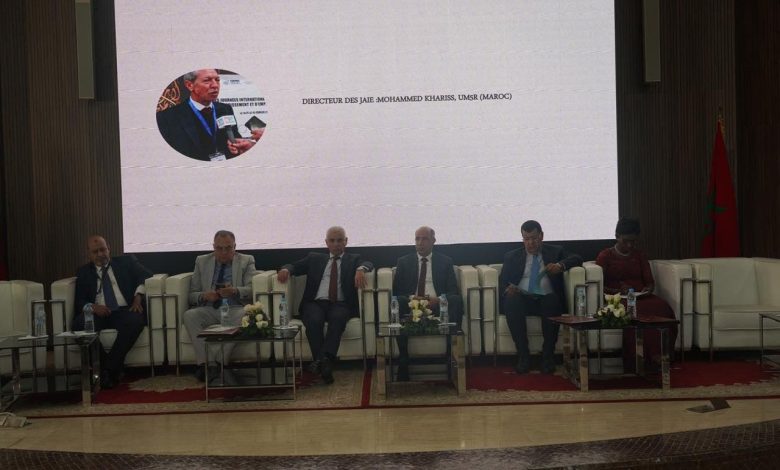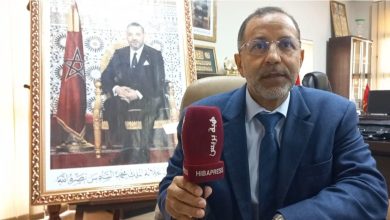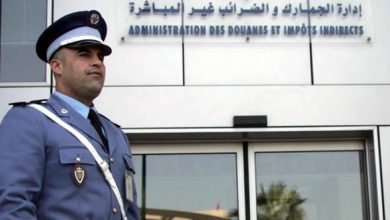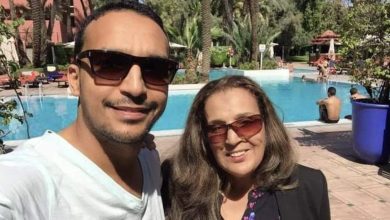Ait Al -Talib and Sabri get up for an African model inspired by royal vision

This article was automatically translated from HIBAPRESS, the Arabic version:
This article was automatically translated from Hibapress, the Arabic version:
Heba Press
On Tuesday, April 8, 2025, the Faculty of Legal, Economic and Social Sciences in Rabat organized the activities of the third session of “African Days for Investment and Employment”, with the participation of government officials and experts from the African continent, which formed a platform for dialogue and collective reflection on the means of advancing strong Africa, unified and independent in its development and its health decision.
In this regard, Hisham Sabri, a state writer in charge of work, said that Africa has a historic opportunity to create a complete and sustainable economic model, based on investment in human capital and young people.
He stressed that the Economic Development of the Continent Will not Be Achieved Without Extensive Integration and Cooperation Between Countries, OR Without Harnessing Collective Intelligence and Opening Up to Training, Technology, and Innovation, Adding that digital health is not limited to improving the quality of care. Horizons for the Emergence of New Professions that follows the Needs of African Youth, Such as Medical Data Analysts, Technicians in Distance Care, Artificial Intelligence Engineers in the Clinical Domain and Health Applications.
The head of government also stressed the importance of improving vocational and university training in partnership with players in the health, technology and innovation sector, and to encourage entrepreneurship in the health field, by supporting regional incubators and innovative service platforms.
He underlined the need to integrate the moral and field dimension in these projects, while guaranteeing an equitable distribution of employment opportunities in the different regions. He stressed that this trend can only succeed by connecting bridges between specializations, countries and institutions, promoting joint research and sharing of experiences and successful experiences.
In this context, the royal discourse of Abidjan was invoked in 2016, noting that the slogan “Africa trusted Africa” is no longer a saying, but rather a frame of reference for interdependent inter-recovery in the continent.
The state clerk in charge of employment stressed: “Investing in employment is an investment in peace, stability and dignity. She experienced African cooperation, experienced young Africans and experienced the flag of progress. ”
For his part, Professor Khaled Ait Al-Talib, a former Minister of Health and Social Protection, stressed that the African continent is now experiencing a promising healthy dynamic, but it remains in an urgent need to create more synergy and integration between its countries in order to build collective health sovereignty capable of facing epidemic and health crises.
He added that the African continent suffers from the dispersion of efforts between its different regions, whether in North, West, Center or East Africa, which hinders the construction of an integrated and homogeneous health system. He stressed that certain institutions, such as the African Center for Diseases Control and Prevention (CDC Africa), make important efforts to overcome this dispersion and establish the ingredients of continental coordination, in particular after the severe lessons left by the Kofid-19, which made Africa have been left apart and was not included in international priorities.
Ait Al -Talib stressed that the Korona pandemic clearly showed the fragility of health systems, not only in Africa, but even in developed countries which have a strong health infrastructure.
He stressed that Morocco, thanks to the pre-sympathetic vision of His Majesty, King Mohammed VI, was treated quickly and effectively with the health crisis since the first case of injury appeared, thanks to the creation of a high leadership committee which includes the vital sectors, the launch of a solidarity fund and the creation of a committee for economic vigilance.
He explained that investment in health during crises must focus on supporting infrastructure, improving hospitalization capacities and the creation of strategic reserves for medicines and medical equipment, highlighting the importance of monitoring buildings and epidemic surveillance systems that make it possible to make decisions based on specific and lived data.
In the same context, the former minister stressed that health sovereignty is not a pure national problem, but rather a continental collective project which requires participatory work and unifying visions and strategies, recalling the situation of Japan, which despite its great capacities, could not pollinate its inhabitants at the start due to a lack of injection, due to the domination of China of the global market.
Ait Al -Talib stressed that Africa has enormous human and natural capacities, and that optimal investment is not only in equipment, but in prevention, indicating that each dirham invests in preventive health provides at least ten dirhams of treatment in the future.
However, The Greatest Challenge, Ait Al -Talib, Adds, is represented in Human Resources, As Health Professionals in Africa Are not Appreciateed and Motivated, Which Affects The Attractiveness of the Sector and It Ability to Holding Compertcies, Stressing that Morocco, with sublime Royal Instructions, has been begun To fund a radical reform of the health system based on re -Consideration of Human Resources, adopting new governce, modernizing structures, and keeping pace with global transformations, eSpecially in light of the entry of artificial intelligence and predictive medicine as essential elements in the professions of medicine and health.
He explained that the future of medicine is no longer based solely on treatment, but also tends to expect and prevent diseases through genetics analysis (genome) and biological data (protection and metabolom), which allows the development of a personal medical model that takes into account the particularities of each patient, which requires enormous investments in research and development.
AI al-Talib criticized the low investment in scientific research within the continent, despite its availability of raw materials and human resources, since this aspect is the lost link which prevents the independence of real health.
He underlined the need to encourage the production of locally, stressing that there are eight African countries that are able to manufacture vaccines, but they need coordination and integration in order to become able to guarantee the needs of the continent without excessive dependence outside.
Khaled called the student to make this meeting a starting point for concrete decisions that result in practical policies offered to the continent’s decision -makers, in order to build a solid, equitable African health system which is capable of dealing with future challenges, stressing that hope takes place on the young people of the continent and its strategic capacities, calling for optimism and continuing to work as a team.
.Hibawts {display: inine-flex; Align-Eeetems: Center; Justification-contained: Center; Background color: # 25D366; padding: .5rem 1.25rem; Police size: 1st; Link-Height: 1.5rem; Police-point: 500; -Tw-tox-opacity: 1; Transition time:. 7s; Transition timing funiating: Cubic-Bezier (. 4.0, 2.1); Width: 49%; } .HIBAWTS SPAN {Color: #FFFFFS; } Padding: 10px; Border-Radius: 10px; Color: #FFF; Police: Bold; Display: inheritance; Marge pot: 5px; } Padding: 10px; Border-Radius: 10px; Color: #FFF; Police: Bold; Display: inheritance; Marge pot: 5px; } Padding: 10px; Border-Radius: 10px; Color: #FFF; Police: Bold; Display: inheritance; } Width: 3rd; Height: 2m; ADIGNE VERTICAL: Middle; Display: online block; Marge: Var (-google -News-icon-Margin); } Url (“https://ar.hibapress.com/wp-constrent background-size: auto; background-size: 2m 2em;} url (” https://ar.hibapress.com/wp-content/themes/hibapress/hiba.svg?6.52#sshare- Telegramgramgramgramgramgramgramgramgramgramgrantargramess-size: Auto; last news from Heba Bress on x







